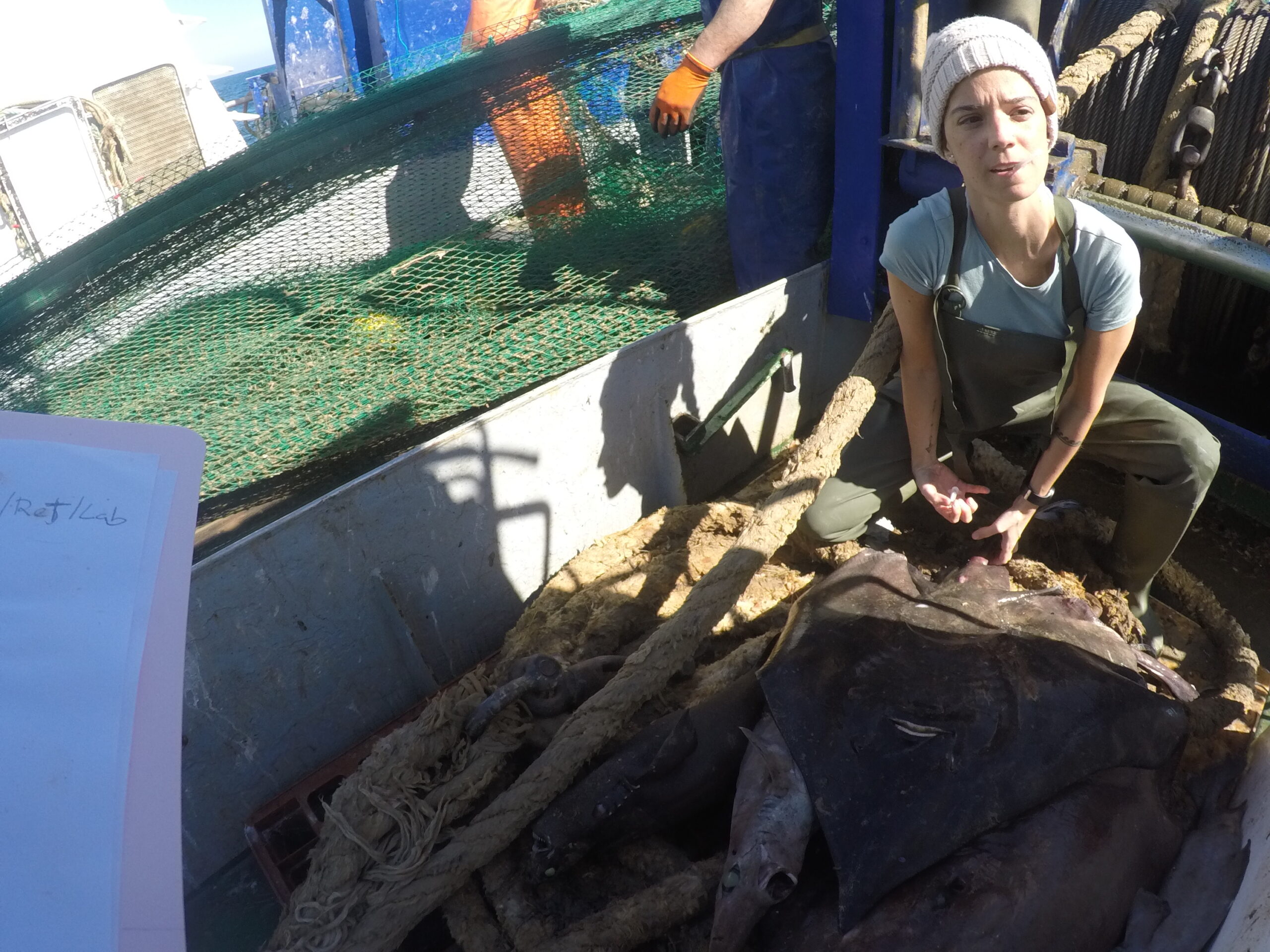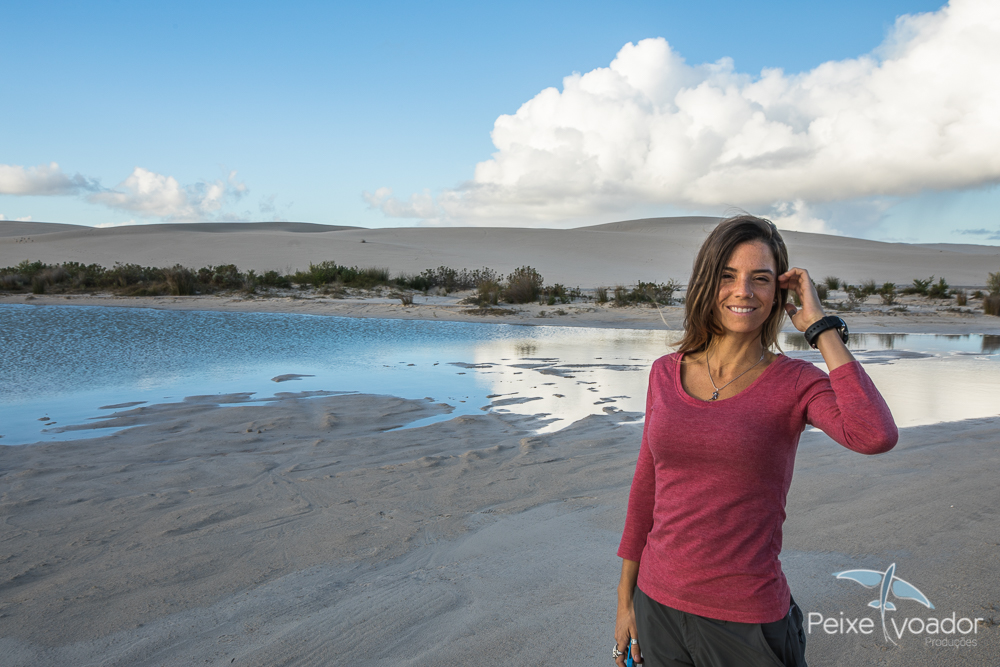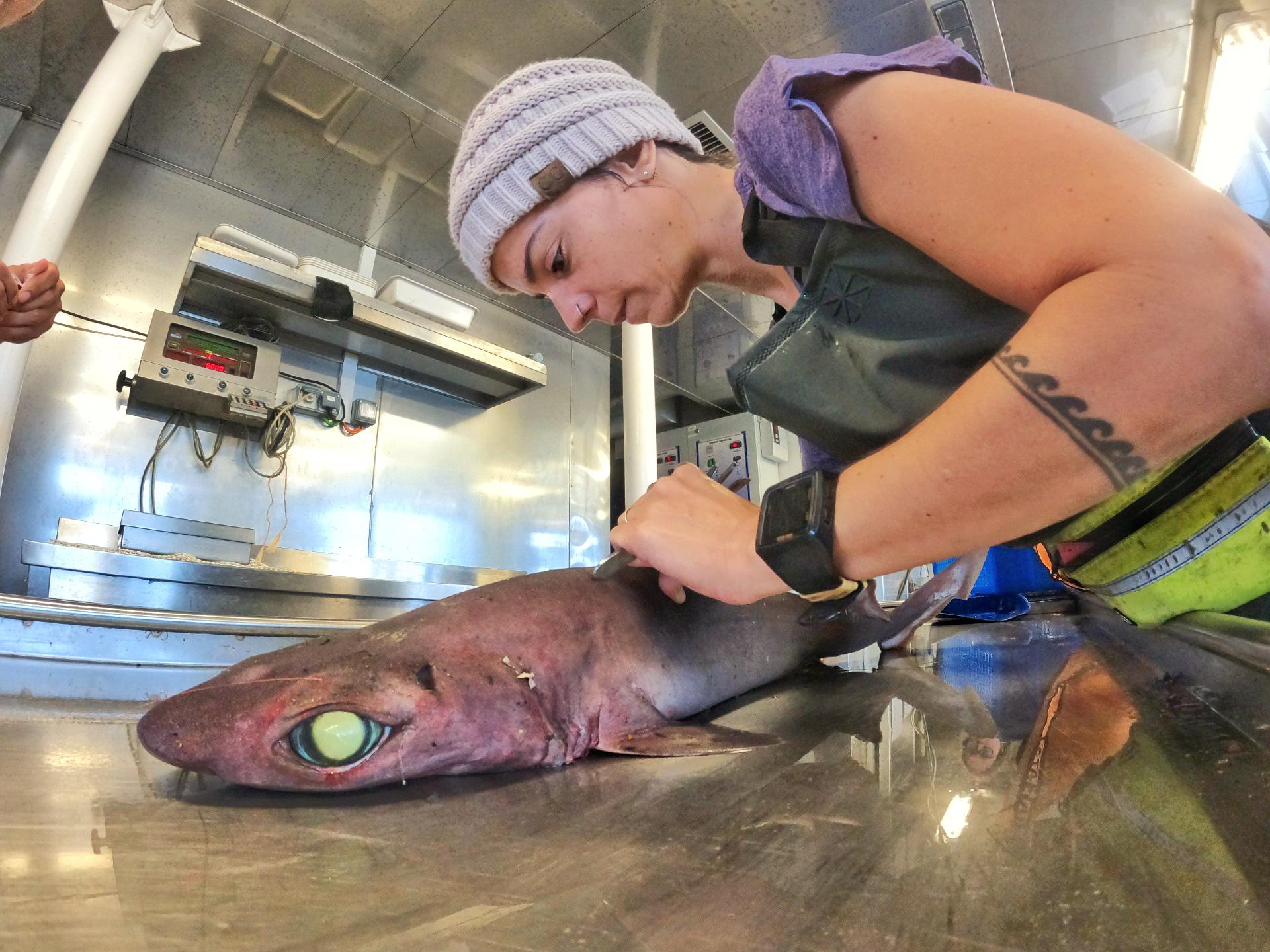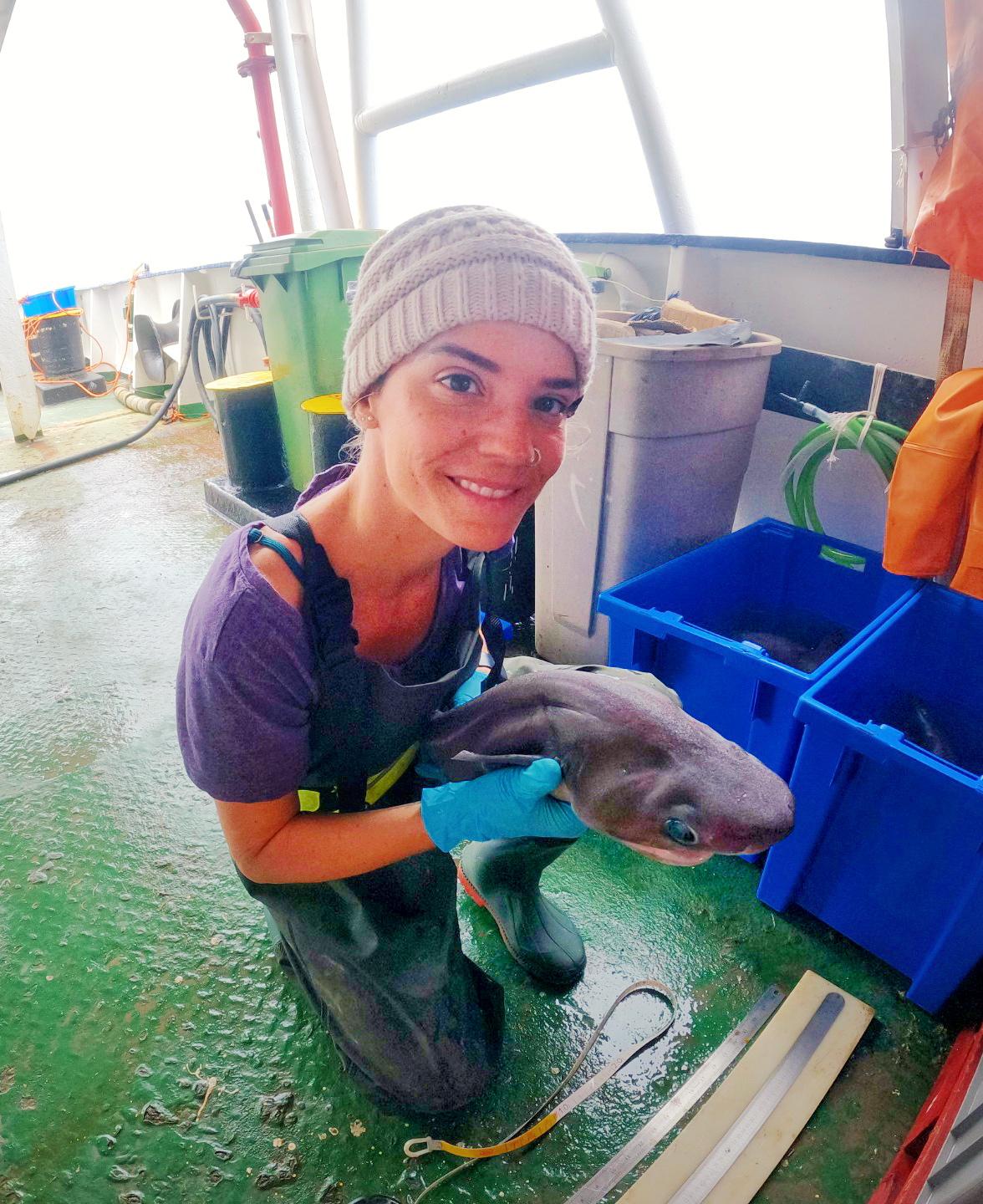Sofia Graça Aranha Carvalho Ramos, PhD Student
CCMAR, University of Algarve, Portugal
Website, Facebook, Instagram
What has been your personal journey into the deep-sea? (Did you always know this is what you wanted to do, or start out on a completely different path?) In other words, what unique journey led you to where you are now?
From a young age I have always been fascinated about the sea and used to watch documentaries and series about the ocean with my grandma. The funny thing is that the deep-sea was the one I was most intrigued with and most curious about but could never relate this to a possible career path. I never thought it would be possible to do the work other people were doing on TV. So, marine biology was not an obvious choice for me during my early teen years, I only decided to be a marine biologist when I was about 14-15 years old, and since then, I knew what I wanted to do this for the rest of my life, though I didn’t plan to study the deep sea, it happened during my masters in the south of Portugal. None of the thesis topics proposed for master students caught my attention since I wanted to continue my studies on sharks, so I decided to develop my own project with my supervisor’s support directed for deep-sea sharks since we had ways to board deep sea bottom trawlers, that’s when it all started and due to the incredible gaps in knowledge I encountered, I knew that I had to continue my study with deep sea elasmobranchs for my PhD as well.
What is your current research question and why are you interested in this topic?
Oh there are so many! Due to the lack of knowledge about the deep sea in general and my passion for elasmobranchs, I’ve decided to better comprehend deep-sea elasmobranchs ecology in order to create measurements to decrease their bycatch and mortality in the crustacean bottom-trawl fisheries. I found that the elasmobranchs bycatch and mortality is so high in this fishery that I want to come up with solutions to mitigate the impacts of the fishing industry on those animals. So, my PhD thesis and other two projects I am running at the moment, are all about that!
What have been some challenges in your work or in studying the deep sea in general? Has your research turned out how you expected?
I believe that the major challenge is the difficult access to the deep sea and to study live animals causing the least impact. My research is opportunistic, I board bottom trawlers and collect the most information I can about elasmobranchs (also from chimaeras) during their normal fishing operations. At first, I did not expect to study the impacts of the bottom-trawl activities on the elasmobranchs survival, but after my master study I realized that this was an urgent matter since the great majority of them are already dead when they come onboard. No wonder, since sometimes hauls can take 9h and depending on target species, fishers might go up to 1400 m depth.

Why is this work important to you and society as a whole?
The ocean plays a crucial role in our daily lives being a source of leisure, livelihood for millions of people, home for several creatures and is also responsible to regulate Earth’s climate, thus, there is no doubt about it’s importance and no argument that we depend on it for our own survival. The overexploitation of coastal fish populations which made fishermen venture into deeper waters, the climate change and the deep sea mining, poses great threats and causes major disruptions to deep sea ecosystems. This is relevant because we still know very little about this spectacular realm which, by the way, is also Earth’s largest biome, so there is still a lot of research to be conducted in order to know how to better protect it from imminent threats.
Because we are such an international organization, can you describe what the deep-sea science community is like in your region?
In Portugal, the deep sea realm has started to be explored not too long ago and is still a new subject with many research gaps in knowledge. With the technology development and the increasing interest from the mining and fishing industries, it has been given more attention lately. There are great specialists working at the best Portuguese research institutions on varied topics, especially the possible impacts posed by fishing, mining activities and climate change in the deep sea biota.
What is your current position (student, researcher, government, non-profit etc) and what do you like about your current role in deep-sea science?
I am a PhD student at the CCMAR in the University of Algarve, south of Portugal. I can say that now I finally feel like a scientist, with infinite possibilities to explore in the deep sea realm. Despite the challenges of working in this area – e.g. long and expensive field journeys, little interest from the public and government, and little funding opportunities – and the (very) limited free time I have for leisure activities, I believe that rewards are so much greater! I feel very fulfilled and am really glad that I have the opportunity to portray the little known deep-sea creatures for the general public, the threats they face and their importance for a healthy and balanced ecosystem.
What advice could you offer to aspiring deep-sea biologists?
The deep-sea is Earth’s largest biome but still extremely unexplored. There is still a lot to learn and discover about the deep-sea, so I highly encourage everyone interested to give it a try, engage and try to fill in the existing knowledge gaps in regards to this enormous biome. Go for it!
What is the biggest challenge or project you look forward to addressing in the future?
I would love to continue developing my work with deep sea sharks and skates, to find out more about their ecology, biology, and conservation status in order to aid and guide politicians into developing and proposing legislation to protect them.
What is your favorite thing about the deep sea?
The little explored deep sea creatures and bioluminescence.



